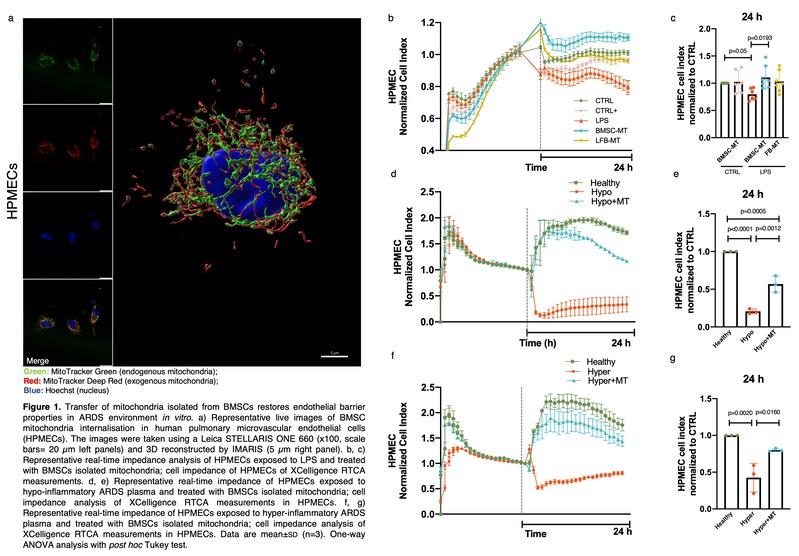Abstract
Introduction: We previously showed that extracellular vesicles from mesenchymal stromal cells (MSC) favourably modulate host cells in the pre-clinical models of ARDS via mitochondrial transfer. Here we tested if transplantation of mitochondria isolated from MSC can restore barrier function of the primary human pulmonary microvascular endothelial cells (HPMECs) in the in vitro models of ARDS. Methods: Mitochondria (Mt) were isolated from human bone marrow MSCs by density centrifugation and tested for purity, membrane integrity and functionality, and co-cultured with HPMECs for 24h. HPMECs Mt uptake was assessed by confocal microscopy and mtDNA copy number. To model ARDS environment, HPMECs were exposed to LPS or plasma from ARDS patients for 24h with or without Mt co-culture. Endothelial barrier integrity was assessed by xCELLigence. Results: MSC Mt were readily taken up by HPMECs and intercalated into the HPMECs mitochondrial network (Fig.1a) without eliciting cytotoxicity or inflammatory response. Mt transplantation significantly improved mitochondrial fitness, reduced inflammation and enhanced barrier integrity of HPMECs in the presence of either LPS or ARDS plasma (Fig.1b-g). Conclusion: In ARDS inflammatory environment mitochondrial transplantation restored functional properties of primary human endothelium. Further investigation of mitochondrial transplantation as a therapeutic strategy for ARDS is warranted.
